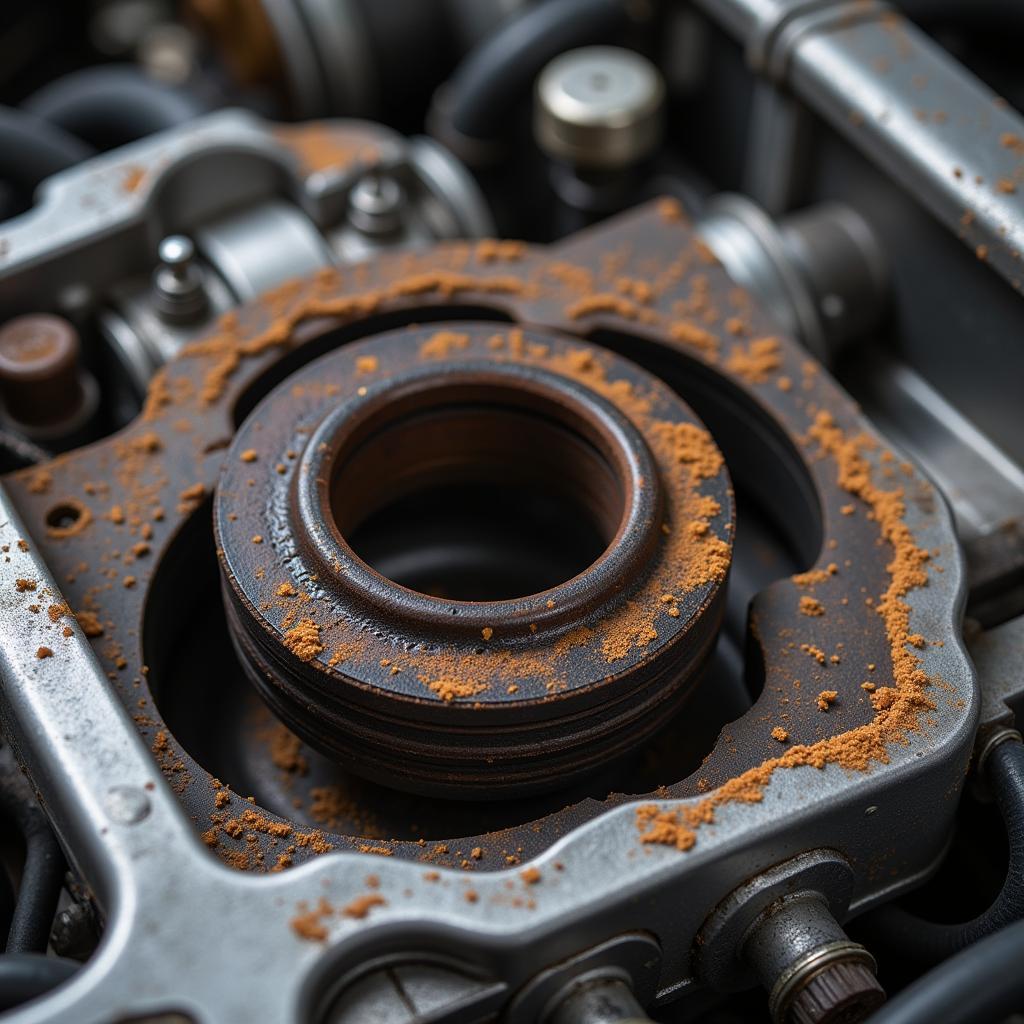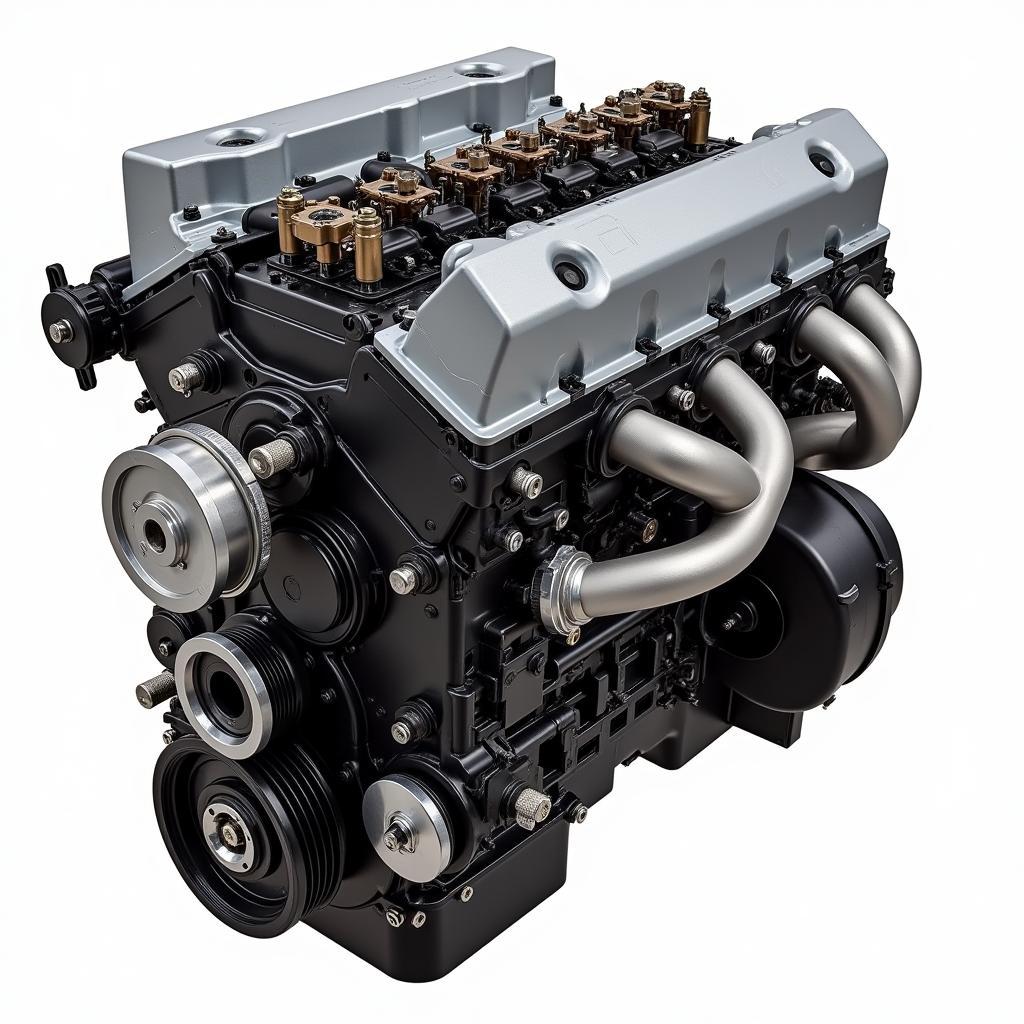If your car is burning oil, you’re likely noticing a drop in oil levels between changes, perhaps accompanied by blue exhaust smoke or a burning oil smell. This can be a symptom of various issues, ranging from minor inconveniences to significant engine problems. Understanding the potential causes is crucial to address the issue effectively and prevent further damage.
If your car burns oil excessively, you might need professional help. You can check out this Reddit fix car problem 1 day.
Why Is My Car Burning Oil?
Several culprits can contribute to oil consumption. Some are relatively simple fixes, while others require more extensive repairs. Let’s explore some of the most common reasons why your car is burning oil:
Worn Piston Rings
Piston rings are vital for sealing the combustion chamber and preventing oil from leaking into it. Over time, these rings can wear down, lose their elasticity, or even break. This allows oil to seep past the pistons and burn along with the fuel.
Valve Seals and Guides
Valve seals prevent oil from entering the combustion chamber through the valve guides. Worn or damaged seals can allow oil to leak into the cylinders, leading to oil burning. Worn valve guides themselves can also contribute to this issue.
PCV Valve Issues
The Positive Crankcase Ventilation (PCV) valve regulates the flow of gases within the crankcase. A faulty PCV valve can create excessive pressure, forcing oil into the intake manifold and subsequently into the combustion chamber.
 Worn piston rings allowing oil to leak into the combustion chamber and burn
Worn piston rings allowing oil to leak into the combustion chamber and burn
Leaky Head Gasket
A blown or leaking head gasket can allow coolant and oil to mix. This can cause oil to enter the combustion chamber and burn, leading to white smoke from the exhaust and potentially overheating.
Worn Cylinder Walls
Over time, cylinder walls can become worn or scored. This creates an uneven surface that allows oil to bypass the piston rings and enter the combustion chamber.
Incorrect Oil Viscosity
Using the wrong oil viscosity can also contribute to oil burning. If the oil is too thin, it can seep past seals and rings more easily. Always refer to your owner’s manual for the recommended oil viscosity for your specific vehicle.
Diagnosing the Problem
Diagnosing the exact cause of oil burning requires some investigative work. Here are some steps you can take:
- Check Your Exhaust Smoke: Blue smoke usually indicates burning oil.
- Monitor Oil Consumption: Keep track of how frequently you need to top off your oil.
- Perform a Compression Test: This test can help identify worn piston rings or cylinder walls.
- Inspect the PCV Valve: Check for clogs or damage.
- Look for Leaks: Inspect the engine for any visible oil leaks.
If you’re unsure, consult a qualified mechanic for a professional diagnosis. Sometimes, you just need a mechanic for car problems that require a mechanic.
Preventing Oil Burning
While some causes of oil burning are due to wear and tear, others can be prevented with proper maintenance:
- Regular Oil Changes: Use the correct oil viscosity and change it according to the manufacturer’s recommendations.
- Check Your PCV Valve Regularly: Replace it as needed.
- Address Leaks Promptly: Don’t ignore even small oil leaks.
Conclusion
“A burning oil smell is never a good sign,” says John Miller, a senior automotive technician at Miller’s Automotive. “Addressing the problem promptly can save you from costly repairs down the road.” So, if your car is burning oil, don’t ignore it. Understanding the potential causes and taking appropriate action can prevent further damage and keep your car running smoothly. For expert assistance, feel free to reach out to AutoTipPro at +1 (641) 206-8880. Our office is located at 500 N St Mary’s St, San Antonio, TX 78205, United States.
Car repair transmission problems can sometimes be related to oil burning issues, especially in older vehicles. You can also check used car problems 2014 mazda6 for specific problems with this model.
FAQ
- What is the most common cause of oil burning? Worn piston rings are often the primary culprit.
- Can I drive my car if it’s burning oil? Yes, but it’s crucial to monitor the oil level and address the underlying issue promptly.
- How much oil burning is considered normal? A small amount of oil consumption is normal, but excessive burning requires attention.
- How much does it cost to fix an oil burning problem? The cost varies depending on the cause and the necessary repairs.
- Can I fix an oil burning problem myself? Some minor issues can be addressed at home, but more complex problems require professional assistance.
- How can I prevent my car from burning oil? Regular maintenance, including oil changes and PCV valve checks, can help prevent oil burning.
- What are the signs of a blown head gasket? White smoke from the exhaust, overheating, and milky oil are common signs of a blown head gasket.





Leave a Reply